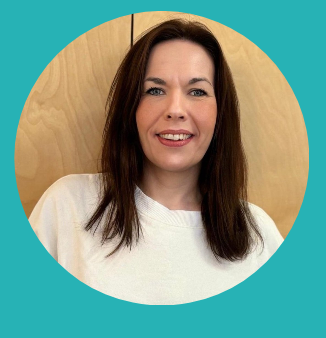Pollyanna Training Theatre, established in 1990, has been a cornerstone of artistic development and community engagement in Tower Hamlets. Founded by a group of passionate theatre enthusiasts, Pollyanna has grown from a Saturday morning class into a renowned training ground for aspiring actors and performers.
For over 30 years, Pollyanna has been igniting the imaginations of young performers aged 3-18, offering bespoke classes led by industry professionals. Unlike franchise-based programs, Pollyanna tailors its approach to each child, fostering confidence, social skills, and a love for the stage. As a registered charity, Pollyanna is passionate about accessibility, offering bursary places for families on Universal Credit.
What Pollyanna brings to the community
 Through its diverse range of workshops, performances, and training programs, Pollyanna has empowered countless individuals, fostering a sense of community and belonging. The theatre's commitment to inclusivity and excellence has made it a loved institution in Tower Hamlets.
Through its diverse range of workshops, performances, and training programs, Pollyanna has empowered countless individuals, fostering a sense of community and belonging. The theatre's commitment to inclusivity and excellence has made it a loved institution in Tower Hamlets.
Due to the continued cost of living crisis, Pollyanna is finding that more and more families need financial support to attend, which is being provided through their Universal Credit support offer. Over 60 per cent of their beneficiaries are from low-income backgrounds who are struggling to make ends meet.
Pollyanna's community involvement has grown significantly over the last decade. The theatre now hosts a variety of events throughout the year, ranging from casual coffee mornings to lively family open mic nights. The most anticipated event, the Wapping Christmas Fair and Tree Lighting, is always met with enthusiasm by local people. Additionally, Pollyanna actively participates in numerous gatherings across East London, showcasing talents at venues such as Wiltons Music Hall, Canary Wharf Roof Gardens, and Spitalfields Market.
Over the past year, Pollyanna has worked directly with 1,300 children and young people, providing 900 hours of tuition in drama and creative arts. They have also provided 252 hours of afterschool drama sessions within four primary schools in the borough. Their summer courses, themed around 'Rock Stars' and 'Once Upon A Time,' were particularly well-received, with children devising and creating their own pieces of theatre.
Value of the Raine's House to the Pollyanna
Pollyanna Training Theatre leases the first floor of Raine's House, in Wapping. This Grade II* listed building was built in 1719 as a charity school where poor children could get an education. Three-hundred years later it was refurbished by the council to high standard, providing a valuable asset to the local community and still helping children to learn and to grow.
The ground floor is managed as a Community Hub by the council and the hall, meeting room, kitchen and outside courtyard is available to hire.
The space at Raine's House allows Pollyanna to offer a wide range of classes in Musical Theatre, LAMDA, Dance, and Drama throughout the week. Pollyanna's work with local schools, providing afterschool drama classes, further extends its reach, enabling children who might otherwise be unable to attend studio sessions to benefit from its programs.
Pollyanna's ability to offer free places to families in need, particularly those on Universal Credit, is a testament to the value of the council building. This support ensures that financial barriers do not prevent children from accessing the benefits of theatrical training. Pollyanna provide free access to their space to a Stay and Play Group twice a week.
“Raine House is more than just our venue, it’s a historic part of Wapping that’s always been rooted in the provision of education for young people and we feel privileged to call it our home.
Being able to offer children, young people and families a safe, nurturing environment to learn new skills, build confidence and creativity,
At the core of what we do is helping young people grow into confident, self-assured individuals. Through drama, they learn to make their own choices, express themselves clearly, and develop the kind of communication skills that matter in real life—whether that’s speaking up in class, interviewing for a job, or just being heard.”
Alexandra Kind – Manager Pollyanna Training Theatre
Why the Voluntary and Community Sector matters
The voluntary and community sector is core to the existence of Tower Hamlets, contributing to the wider social fabric of the borough in so many ways. The sector comprises a wide range of over 1300 organisations with a combined income of over £200 million, employing 4,300 people and supported by over 25,000 volunteers. The current climate in the voluntary and community sector is a challenging one with a combination of factors including a difficult funding environment, a cost-of-living crisis, rising costs, and increased demand for services. This is true nationally but is particularly acute in Tower Hamlets with its high levels of poverty and disadvantage.
The community premises offer
Raine's House is one of 70 council premises that are part of the Community Premises Portfolio- a varied property portfolio which are available exclusively for lease by VCS organisations at a community rent. Qualifying organisations can further reduce rental costs by up to 80 per cent as part of the council's Community Benefit Rent Reduction Scheme. Find our more on the community premises to lease page.
For buildings that are available for hourly or short-term hire visit the halls and venues for hire page.
More information about hiring Raines House Community Hub.